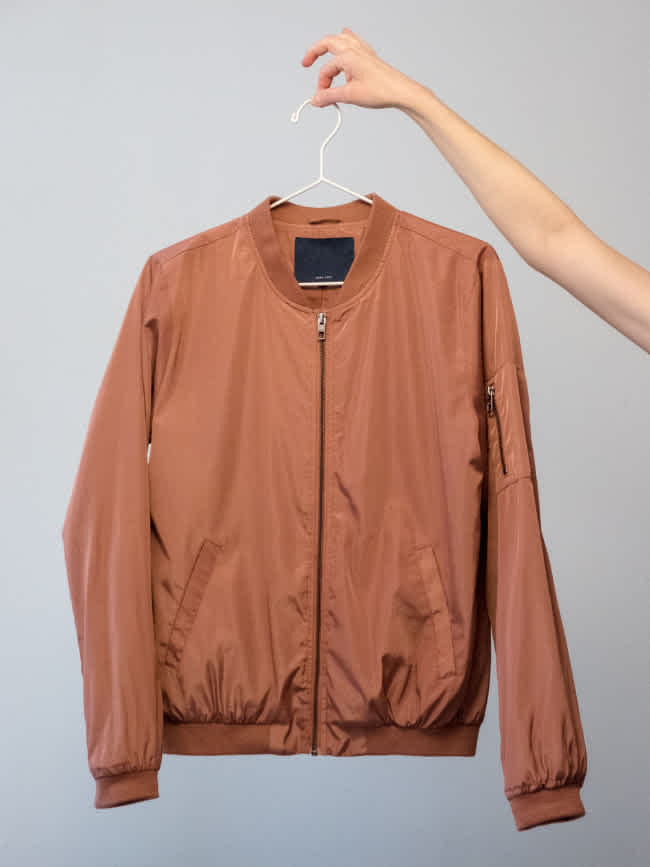
VINTED VS DEPOP: WHERE TO SELL CLOTHES ONLINE?
If you think about selling your old clothes online, two reselling apps immediately spring to mind - Vinted and Depop. Both platforms are dominant forces, connecting 21 and 26 million users worldwide, respectively.
However, while both apps provide practically the same services, they differ in a few key areas. That leads us to the question, which of these two reselling platforms is better? To answer that, we must take a closer look at the two.
About Vinted
Launched in Lithuania in 2008, Vinted quickly expanded to 10 more countries, becoming an instant success among clothes reselling apps. As of today, Vinted is available in 15 countries. Its marketplace connects over 21 million users, selling, buying, and exchanging second-hand clothes and accessories.
About Depop
Depop's beginnings were also relatively humble. The website was launched in 2011 as a social network for PIG magazine readers wanting to buy featured items. However, it soon started to spread across other markets, eventually becoming a worldwide marketplace for second-hand clothing. What distinguishes Depop from Vinted is its emphasis on social features, working as a social network app in addition to being a reselling marketplace.
Vinted vs Depop: Key Differences
On paper, Depop and Vinted offer the exact same services, connecting second-hand clothing sellers with buyers. Using a Vinted or Depop app, users can sell, buy, or exchange their used clothes. However, while the idea behind the two is similar, there are some key differences between Vinted and Depop.
Audience
The first difference is the market available. As covered, Vinted connects 21 million users worldwide, operating in 15 countries. Depop, on the other hand, while having a user base of over 26 million, is only available in 6 countries. Also, while Vinted focuses mainly on the European market, Depop is much more popular in the United States.
Both apps also target slightly different audiences. Since Depop works more like a social network platform, it allows sellers to reach more users with their listings. The user base on Depop is also younger than on Vinted, which, in exchange, has a more international user base.
Selling Experience
Selling on Depop and Vinted looks pretty similar, requiring sellers to engage in increasing sales. Essentially, the more you engage, be it by liking items, listing products, following other users, etc., the more sales you're likely to generate. It's also recommended to refresh and bump your listings for them to stay at the top of the search.
But let's talk about differences. Both apps implement slightly different structures, with Depop having a more 'social' feel, with buyers scrolling through listings like they were using Instagram or Facebook. Depop also requires sellers to make their offers look more professional, which is why it's better suited for small businesses.
Vinted is more transactional. It incorporates fewer categories and focuses more on a buyer experience, allowing users to make offers faster. Listings also aren't required to look overly professional, which makes the Vinted app better suited for casual sellers who want to clear their inventory.
Seller Fees
While no seller likes to pay fees, they are integral to online selling. Depop, for example, charges its sellers 10% of each sale plus the possible PayPal fee for one's country.
Unlike Depop sellers, Vinted sellers don't pay any fees. Posting and selling using the platform are completely free, and the buyer pays the fees associated with the sale. The buyer pays shipping costs and a small buyer protection fee when buying via Vinted. Therefore, as a seller on Vinted, the buyers will expect you to offer a lower price for your products, as they are the ones covering all the fees.
Payments
Vinted and Depop have different payment policies. Depop payments are transferred directly to your PayPal account, and no intermediary is involved in handling transactions. Vinted operate differently, with money not being transferred to your account immediately after the purchase. Instead, the app uses an escrow service that holds the money in your Vinted wallet until the buyer gets and accepts the item.
Shipping Cost
As said, when selling at Vinted, a buyer covers all transaction-related fees, including shipping costs. That said, you can expect to ship your items at lower prices when using Vinted. On the other hand, Depop sellers can absorb the postage cost by hiding it in the item's price as free shipping. You can also save money on shipping by using Packlink to compare couriers and find the most cost-efficient solution.
Refund & Shop Policies
Depop allows its sellers to include rules buyers can see when scrolling through their posts. These are called 'Shop Policies,' stating whether you accept returns as a seller. Also, as a Depop seller, you're responsible for contacting a buyer when something's wrong with the order.
As for Vinted, they have a buyer's protection feature. It's nothing else than a standard return policy where buyers can return items that might be damaged, missing, or cancelled. Vinted also works as an intermediary between sellers and buyers, helping resolve issues.
Final Thoughts on Depop vs Vinted
As you can see, while looking practically identical at first glance, Depop and Vinted are two sides of the same coin. Sure, both platforms offer similar services, but their approach is different. Which one is better, though? As in most cases, it depends.
Vinted, for instance, is generally more focused on the transactional side. It's a bit more buyer-friendly, encouraging users to make quick transactions and enabling them that by intuitive and straightforward service. Therefore, Vinted might be a better choice for a casual seller interested in making some extra money.
Depop, on the other hand, is a better choice for a small business. It allows sellers to reach a broader audience thanks to its social features and emphasises a more professional approach when creating posts. It does come with fees and higher shipping costs. However, these can be dealt with by using Packlink to find the cheapest parcel delivery service.
